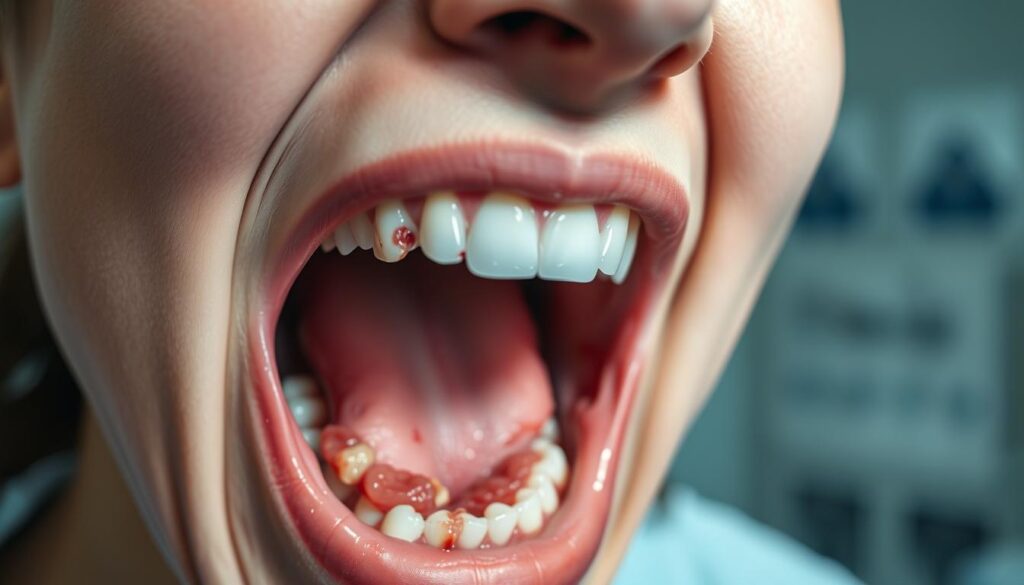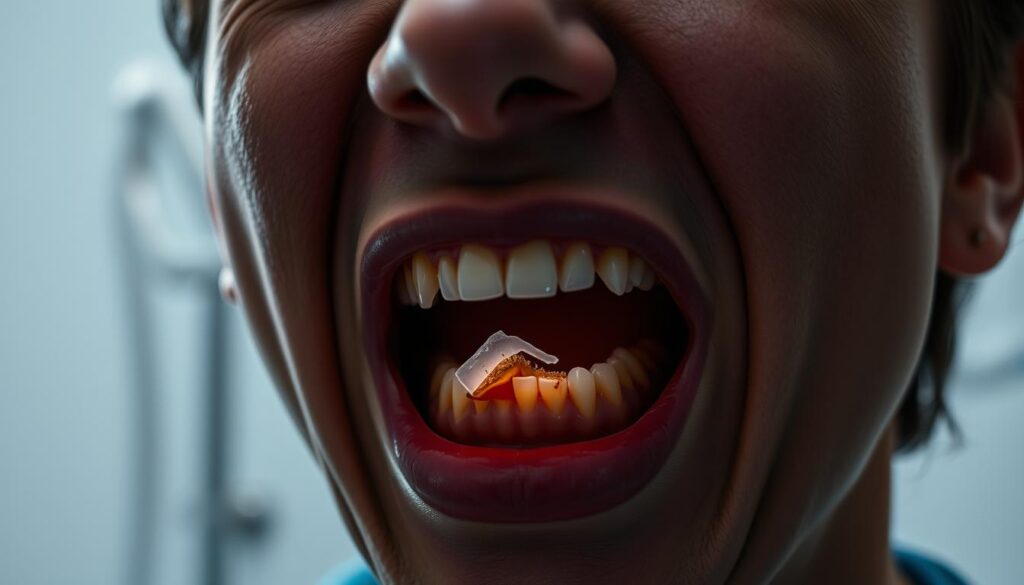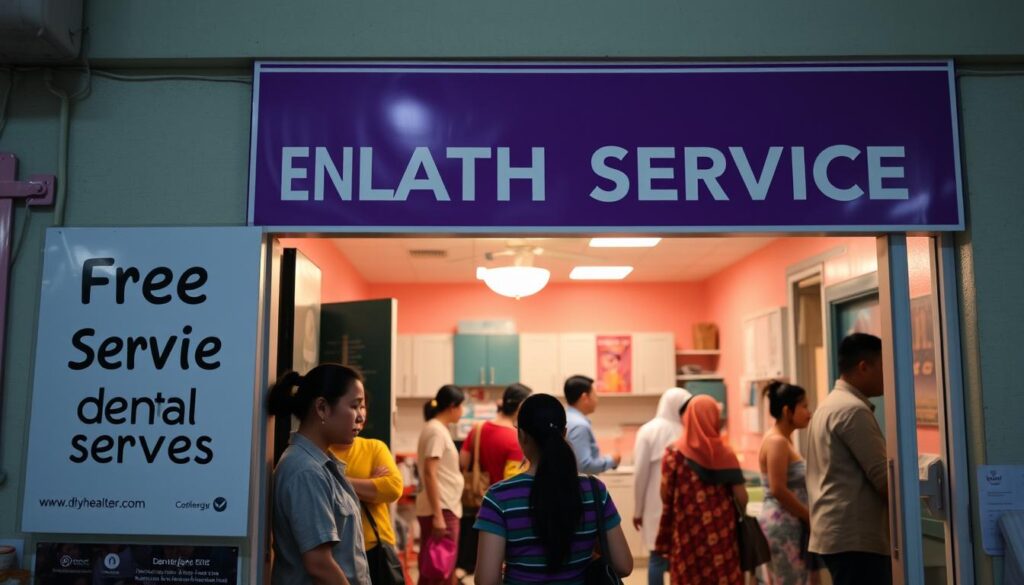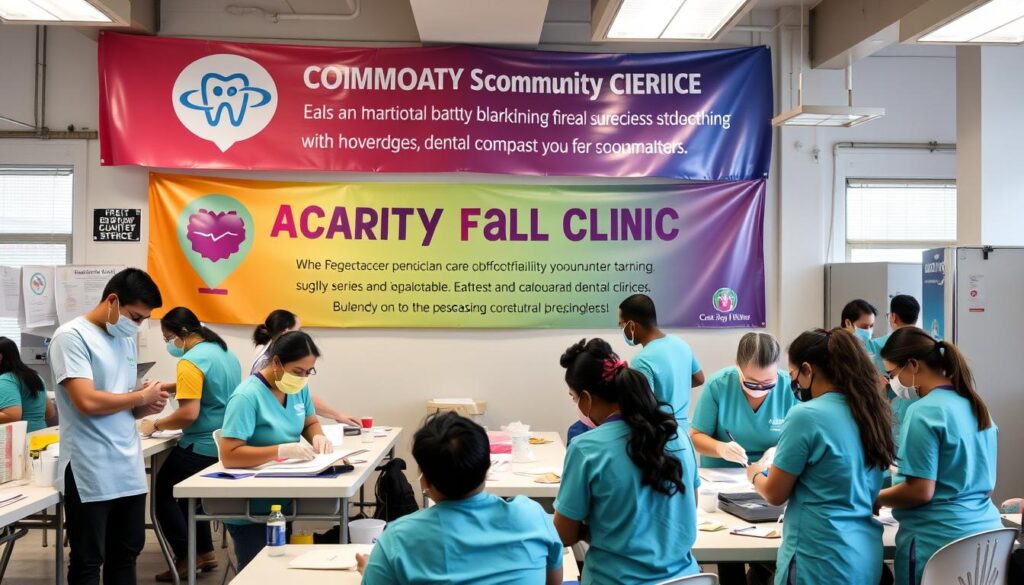Dealing with a dental emergency can be stressful, especially when you’re without insurance. Approximately 1 in 3 American adults lack dental insurance, making it challenging to navigate emergency dental care.
I understand the anxiety of facing unexpected dental issues and the importance of receiving timely care. In this guide, I’ll walk you through practical steps to address your dental emergency, even without insurance coverage. Understanding what constitutes a true emergency and exploring affordable options can help you make informed decisions about seeking care.
Key Takeaways
- Understand what constitutes a true dental emergency requiring immediate attention.
- Explore affordable dental care options despite lacking insurance.
- Learn strategies for managing costs and payment options.
- Discover ways to prevent future dental emergencies.
- Many dentists offer payment plans for patients without insurance.
Understanding Dental Emergencies
Understanding what constitutes a dental emergency is crucial for receiving timely care and avoiding unnecessary costs. Dental emergencies often require immediate attention to alleviate pain, prevent infection, and address trauma.
What Qualifies as a True Dental Emergency
A true dental emergency involves conditions that can cause severe pain, infection, or trauma. For instance, if you experience tooth crown pain around a particular tooth, try flossing that tooth to remove any stuck food particles. Rinsing with mouthwash or warm salt water can also help loosen debris and protect against infection. Conditions like severe infections with facial swelling, uncontrolled bleeding, and traumatic injuries with tooth displacement qualify as emergencies.
Conditions That Can Wait vs. Those That Can’t
Not all dental issues require immediate attention. Minor chips without pain, lost fillings or crowns without significant discomfort, mild sensitivity, and cosmetic concerns can usually wait for a regular appointment. However, conditions like debilitating pain that can’t be managed with over-the-counter medications, severe infections, and traumatic injuries cannot wait. Understanding the difference can help you avoid unnecessary emergency fees.
| Emergency Conditions | Non-Emergency Conditions |
|---|---|
| Severe infections with facial swelling | Minor chips without pain |
| Uncontrolled bleeding | Lost fillings or crowns without discomfort |
| Traumatic injuries with tooth displacement | Mild sensitivity |
| Debilitating pain | Cosmetic concerns |

Immediate Steps to Take During a Dental Emergency
In the event of a dental emergency, staying calm and taking the right actions can help alleviate pain and reduce the risk of further damage. It’s crucial to act quickly to manage the situation effectively.
Managing Pain and Preventing Further Damage
To manage dental emergency pain, it’s essential to take steps that prevent further damage. This includes applying a cold compress to reduce swelling and using over-the-counter pain relievers. Properly managing pain can help you navigate the emergency more effectively.
| Action | Benefit |
|---|---|
| Cold Compress | Reduces swelling and numbs the area |
| Over-the-counter pain relievers | Manages pain |
| Salt water rinse | Reduces inflammation and kills bacteria |
Home Remedies for Temporary Relief
Several home remedies can provide temporary relief during a dental emergency. These include using clove oil for its natural anesthetic properties, applying dental wax to protect sharp edges, and using temporary dental cement for lost fillings or crowns.

- Clove oil: Natural anesthetic for pain relief
- Dental wax: Protects against sharp edges
- Temporary dental cement: Holds restorations in place
Finding Emergency Dental Care Without Insurance
Dental emergencies can strike at any time, and lacking insurance shouldn’t stop you from getting the care you need. When faced with an urgent dental issue, it’s essential to understand your options for managing the costs.
Many dental practices understand the challenges of lacking insurance and offer various solutions to help patients.
How to Communicate Your Financial Situation to Dentists
Being open about your financial situation can help you negotiate better payment terms. Many dentists are willing to work with patients to find a manageable solution.
Don’t hesitate to discuss your financial constraints; this can lead to more affordable options for your emergency dental care.
Payment Plans and Financing Options
There are several payment and financing options available to help manage the cost of emergency dental care. Many dental practices offer in-house payment plans that allow you to spread the cost over several months, often without interest if paid within a specific timeframe.
Healthcare credit cards like CareCredit are designed for medical and dental expenses and often offer promotional periods with no interest if the balance is paid in full. Understanding these options can help you make quick decisions when facing an urgent dental situation.
Affordable Dental Care Options for the Uninsured
There are several options available for those seeking affordable dental care without insurance. When faced with a dental emergency, it’s crucial to find a solution that doesn’t compromise on care due to financial constraints.
Explore your local options to find affordable dental care.
Dental Schools and Teaching Clinics
Dental schools and teaching clinics offer affordable dental care services. These clinics are staffed by supervised dental students who provide various treatments at reduced costs. To find one near you, search for “dental school clinics near me.”

Community Health Centers and Public Clinics
Community health centers and public clinics provide dental services, including emergency care, at little to no cost. Some of these clinics operate on a sliding fee scale based on income. You can search for “free dental clinics near me” to locate them.

Nonprofit Organizations and Charity Programs
Several nonprofit organizations and charity programs offer dental care services to the uninsured. Programs like Dental Lifeline Network and Mission of Mercy provide comprehensive dental care to vulnerable populations. You can search for “dental charity programs” to find such organizations.

Dental Savings Plans: An Alternative to Insurance
Dental savings plans offer a viable alternative for individuals lacking dental insurance or seeking additional discounts. These plans can be particularly beneficial for those who need dental work that exceeds the coverage limits of traditional insurance or for services not typically covered, such as cosmetic procedures.
How Dental Savings Plans Work
A dental savings plan operates by offering discounted rates on dental procedures for its members. By paying an annual fee, members can access reduced rates on various dental services from participating dentists.
Comparing Costs: Savings Plans vs. Out-of-Pocket Expenses
For emergency procedures like root canals or extractions, dental savings plans can significantly reduce costs. For instance, a root canal costing $1,000 could be discounted by 25-50%, resulting in substantial savings despite the plan’s membership fee.
Navigating Costs for Common Dental Emergencies
Emergency dental care costs can be overwhelming, but being informed can help you manage them. When you’re uninsured, it’s essential to understand the costs involved in emergency dental procedures.
Average Costs for Emergency Procedures Without Insurance
The costs of emergency dental care vary widely. For instance, a routine cleaning and exam can cost $200 or more. Filling cavities can cost several hundred dollars, while total fees for dentures and braces can reach into the thousands. Understanding these costs can help you plan and budget for your emergency dental care.

Negotiating Fees and Finding the Best Rates
To manage costs, it’s crucial to negotiate fees and find the best rates. Calling multiple dental offices to compare emergency fees is a simple yet effective strategy. Many dentists offer discounts for upfront cash payments, typically ranging from 5-10%. Requesting a detailed treatment plan with itemized costs can also help you identify areas to discuss with your dentist. Understanding dental procedure codes (CDT codes) can help you make accurate price comparisons between providers.
Preventing Future Dental Emergencies When Uninsured
When you don’t have dental insurance, taking preventive measures is key to avoiding costly emergencies. This involves understanding the most effective and affordable preventive care practices.
Essential Preventive Care Practices
Regular professional cleanings, even if limited to once per year, can significantly help prevent the buildup of plaque and tartar that leads to decay and gum disease. It’s also crucial to maintain good oral hygiene practices at home, including brushing and flossing regularly.
Low-Cost Preventive Services to Prioritize
To save money, consider affordable cleaning services through dental schools, community health centers, and dental hygiene schools. Diagnostic X-rays every 2-3 years can help identify problems before they become emergencies. Fluoride treatments are also relatively inexpensive and provide significant protection against decay. For those with specific risk factors, investing in protective devices like night guards or sports mouthguards can prevent traumatic dental emergencies.
Conclusion: Taking Control of Your Dental Health Without Insurance
Navigating dental emergencies without insurance requires a strategic approach to maintain oral health. I’ve outlined comprehensive strategies for managing dental emergencies, empowering you to take control despite financial constraints. Affordable options exist through dental schools, community health centers, payment plans, and dental savings plans. By being proactive and exploring these resources, you can maintain your oral health while managing expenses. Consider longer-term solutions like dental savings plans to better prepare for future dental needs. Investing in your dental health yields overall health benefits and reduces emergency expenses. By combining these approaches, you can effectively manage your dental health without insurance.
FAQ
What is considered a dental emergency?
How can I manage pain during a dental emergency?
Can I visit any dentist for an emergency?
What are my payment options if I don’t have insurance?
Are dental schools a good option for emergency care?
How can I prevent future dental emergencies?
What are the average costs for common emergency procedures?
FAQ
What is considered a dental emergency?
A dental emergency is a situation that requires immediate attention from a dentist to alleviate severe pain, bleeding, or to prevent infection. Examples include a knocked-out tooth, severe toothache, or a broken filling.
How can I manage pain during a dental emergency?
To manage pain, you can take over-the-counter pain relievers like ibuprofen or acetaminophen. Applying a cold compress to the affected area can also help reduce swelling and ease pain.
Can I visit any dentist for an emergency?
While you can visit any dentist, it’s best to call ahead and confirm they offer emergency services and accept patients without insurance. Some dentists may have specific hours or requirements for emergency appointments.
What are my payment options if I don’t have insurance?
Many dentists offer payment plans, financing options, or sliding scale fees based on income. You can also consider dental savings plans as an alternative to insurance.
Are dental schools a good option for emergency care?
Yes, dental schools can be a cost-effective option for emergency care. They often provide comprehensive care at a lower cost, with students supervised by experienced dentists.
How can I prevent future dental emergencies?
Practicing good oral hygiene, including regular brushing and flossing, and attending regular check-ups can help prevent many dental emergencies. Prioritizing low-cost preventive services is also crucial.
What are the average costs for common emergency procedures?
The costs vary depending on the procedure. For example, a simple extraction can cost between to 0, while a root canal can range from 0 to
FAQ
What is considered a dental emergency?
A dental emergency is a situation that requires immediate attention from a dentist to alleviate severe pain, bleeding, or to prevent infection. Examples include a knocked-out tooth, severe toothache, or a broken filling.
How can I manage pain during a dental emergency?
To manage pain, you can take over-the-counter pain relievers like ibuprofen or acetaminophen. Applying a cold compress to the affected area can also help reduce swelling and ease pain.
Can I visit any dentist for an emergency?
While you can visit any dentist, it’s best to call ahead and confirm they offer emergency services and accept patients without insurance. Some dentists may have specific hours or requirements for emergency appointments.
What are my payment options if I don’t have insurance?
Many dentists offer payment plans, financing options, or sliding scale fees based on income. You can also consider dental savings plans as an alternative to insurance.
Are dental schools a good option for emergency care?
Yes, dental schools can be a cost-effective option for emergency care. They often provide comprehensive care at a lower cost, with students supervised by experienced dentists.
How can I prevent future dental emergencies?
Practicing good oral hygiene, including regular brushing and flossing, and attending regular check-ups can help prevent many dental emergencies. Prioritizing low-cost preventive services is also crucial.
What are the average costs for common emergency procedures?
The costs vary depending on the procedure. For example, a simple extraction can cost between $75 to $200, while a root canal can range from $300 to $1,500 or more, depending on the complexity.
Can I negotiate fees with my dentist?
Yes, it’s possible to negotiate fees with your dentist, especially if you’re paying out-of-pocket. Be open about your financial situation, and they may be willing to work with you to find a mutually agreeable price.
,500 or more, depending on the complexity.
Can I negotiate fees with my dentist?
Yes, it’s possible to negotiate fees with your dentist, especially if you’re paying out-of-pocket. Be open about your financial situation, and they may be willing to work with you to find a mutually agreeable price.
